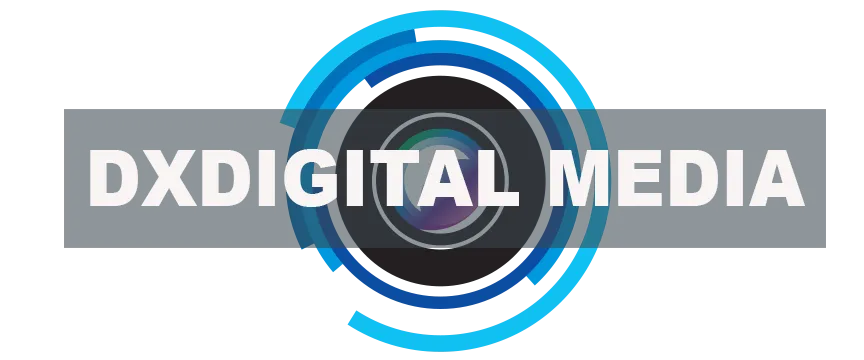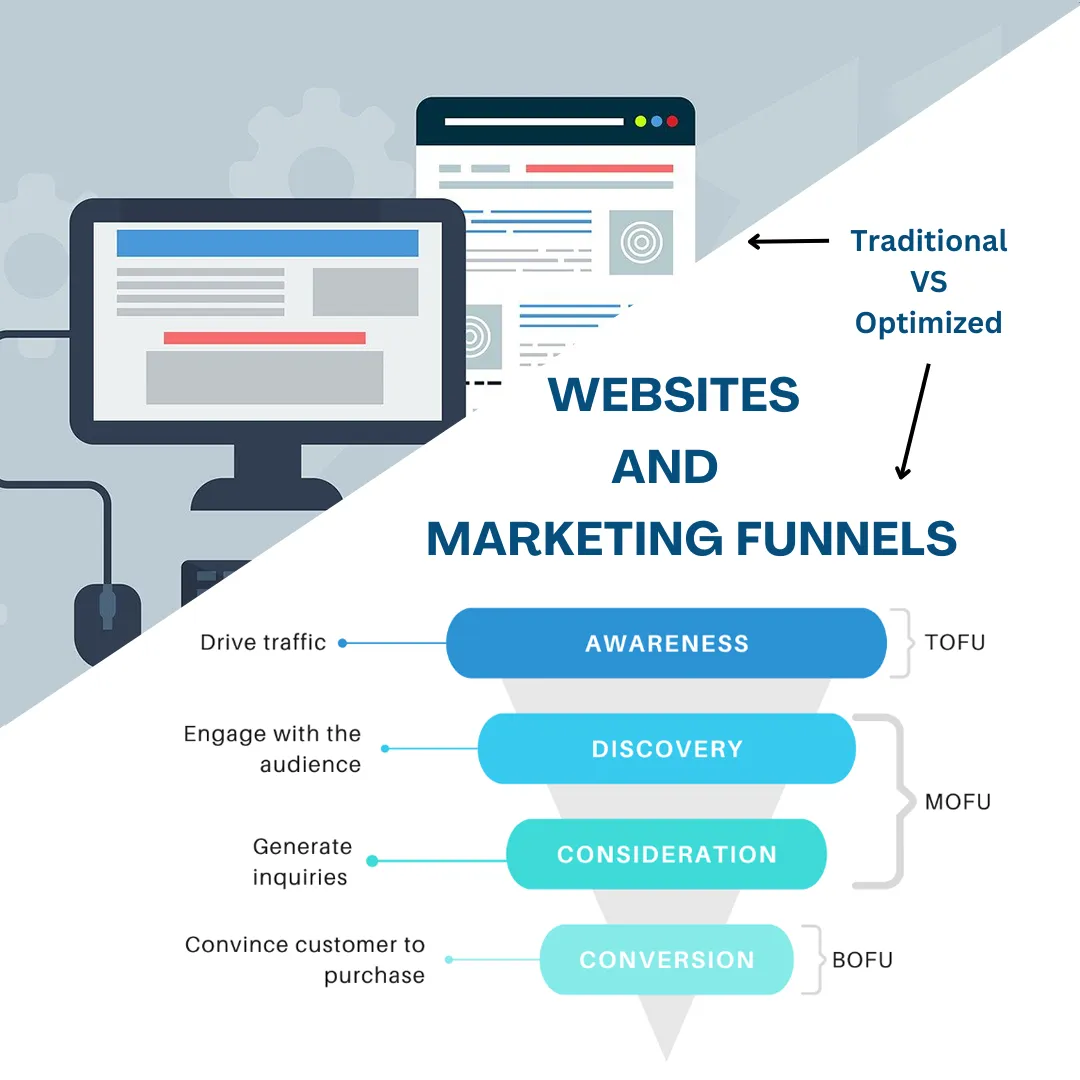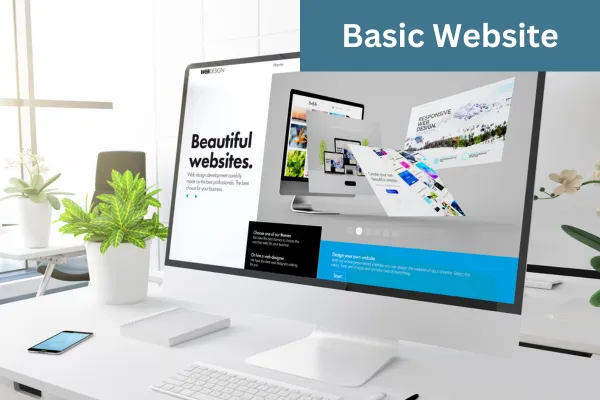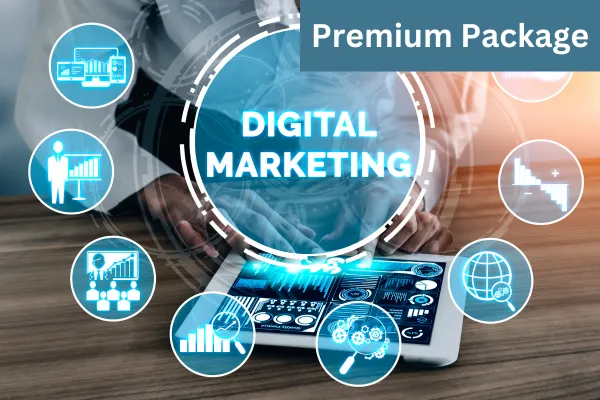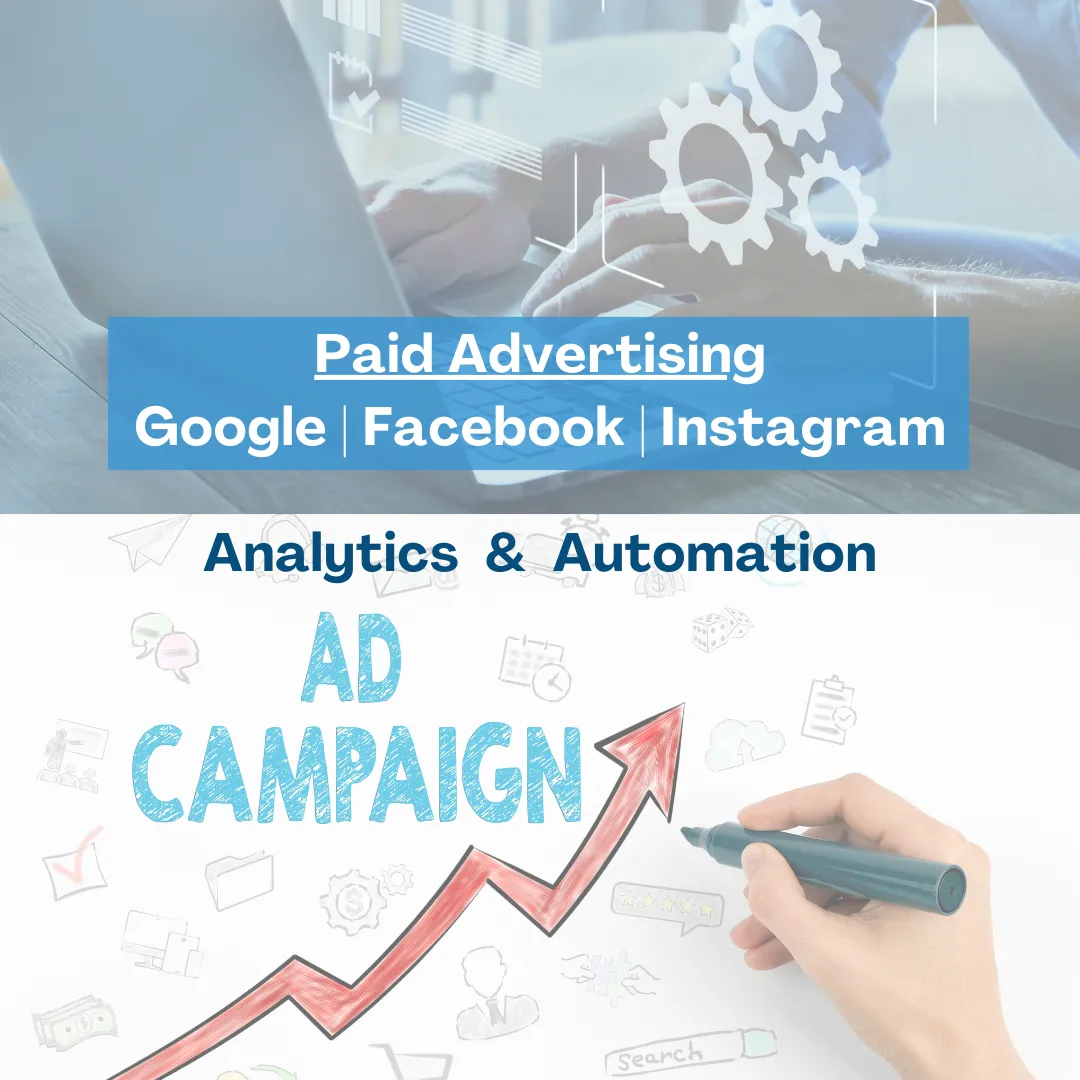WHY SHOULD YOU HAVE A SALES FUNNEL?
Funnels are designed to convert. A website is a collection of pages that are designed to provide information about a business, its products, and services.
While websites are essential, they are not necessarily designed to convert visitors into customers. On the other hand, sales funnels are designed specifically to convert visitors into customers.
Funnels use a series of steps to guide visitors towards making a purchase. They are optimized to provide the right information at the right time, and they use techniques such as scarcity and urgency to encourage visitors to take action. Funnels are more focused. Websites are often cluttered with information, which can make it difficult for visitors to find what they are looking for. This can lead to frustration and a high bounce rate. Funnels, on the other hand, are more focused. They are designed to guide visitors towards a specific goal, such as making a purchase or signing up for a newsletter. This makes it easier for visitors to understand what they need to do to achieve their goal, and it reduces the chance of them getting distracted and leaving the page.
Funnels provide a better user experience. Websites can be overwhelming, especially for first-time visitors. There are often too many options, and visitors may not know where to start. Sales funnels provide a better user experience by guiding visitors through a series of steps. This helps visitors to understand what they need to do to achieve their goal, and it reduces the chance of them getting lost or confused.
Funnels are more measurable. Websites are notoriously difficult to measure. While you can track website traffic and engagement, it can be challenging to know how many visitors are converting into customers. Sales funnels, on the other hand, are highly measurable. You can track each step of the funnel, and you can see exactly how many visitors are converting at each stage. This makes it easier to optimize your funnel and improve your conversion rate.
Funnels are more cost-effective. Websites can be expensive to design and maintain. They require ongoing updates, and you may need to hire a web developer to make changes. Sales funnels, on the other hand, are more cost-effective. They are typically built using a drag-and-drop builder, which means you can design and launch a funnel without any technical skills. This can save you a lot of money in the long run.
In conclusion, sales funnels are better than websites for online marketing. They are designed to convert visitors into customers, they are more focused, they provide a better user experience, they are more measurable, and they are more cost-effective. If you're looking to grow your business online, then a sales funnel is the way to go.
